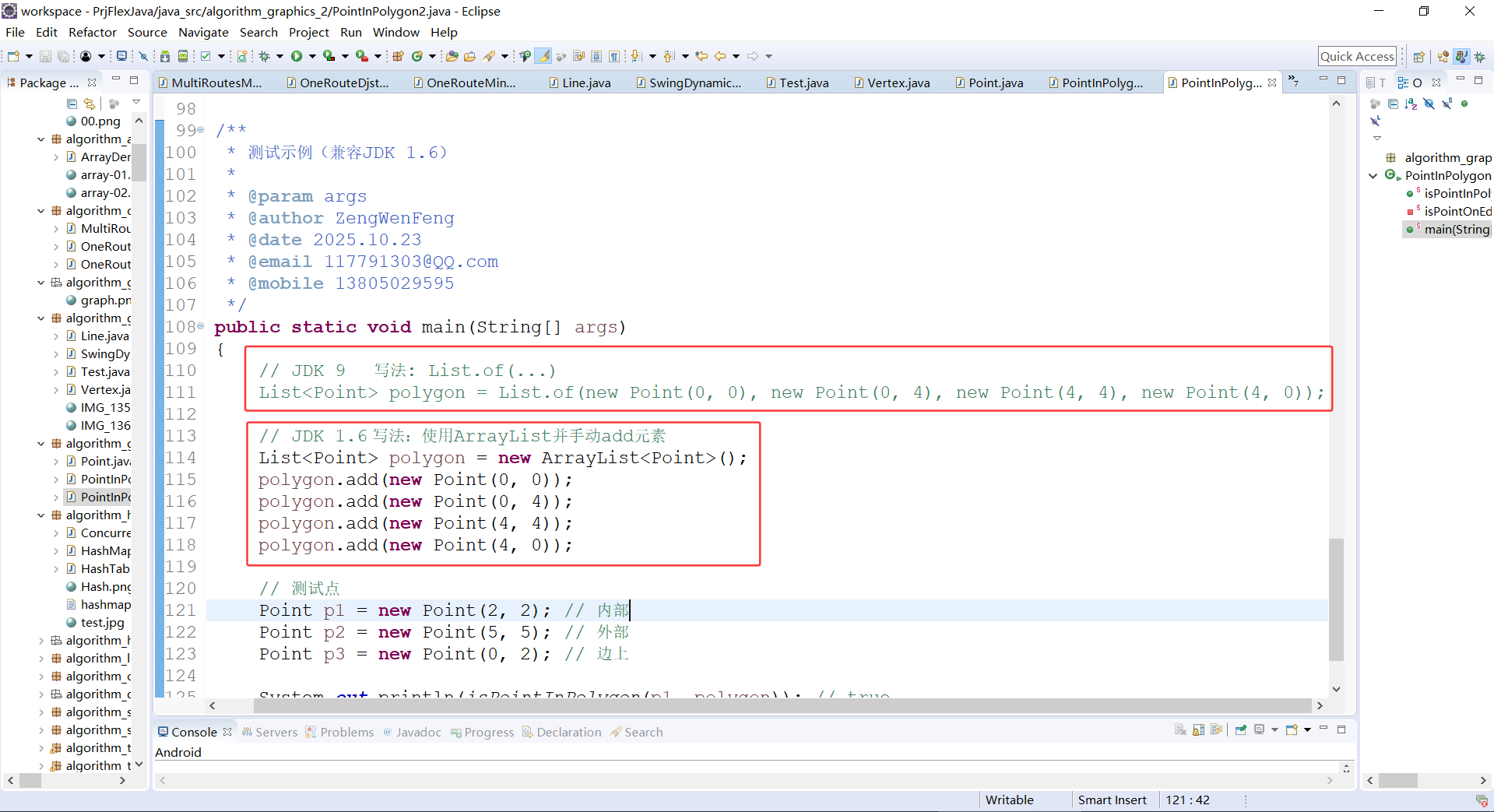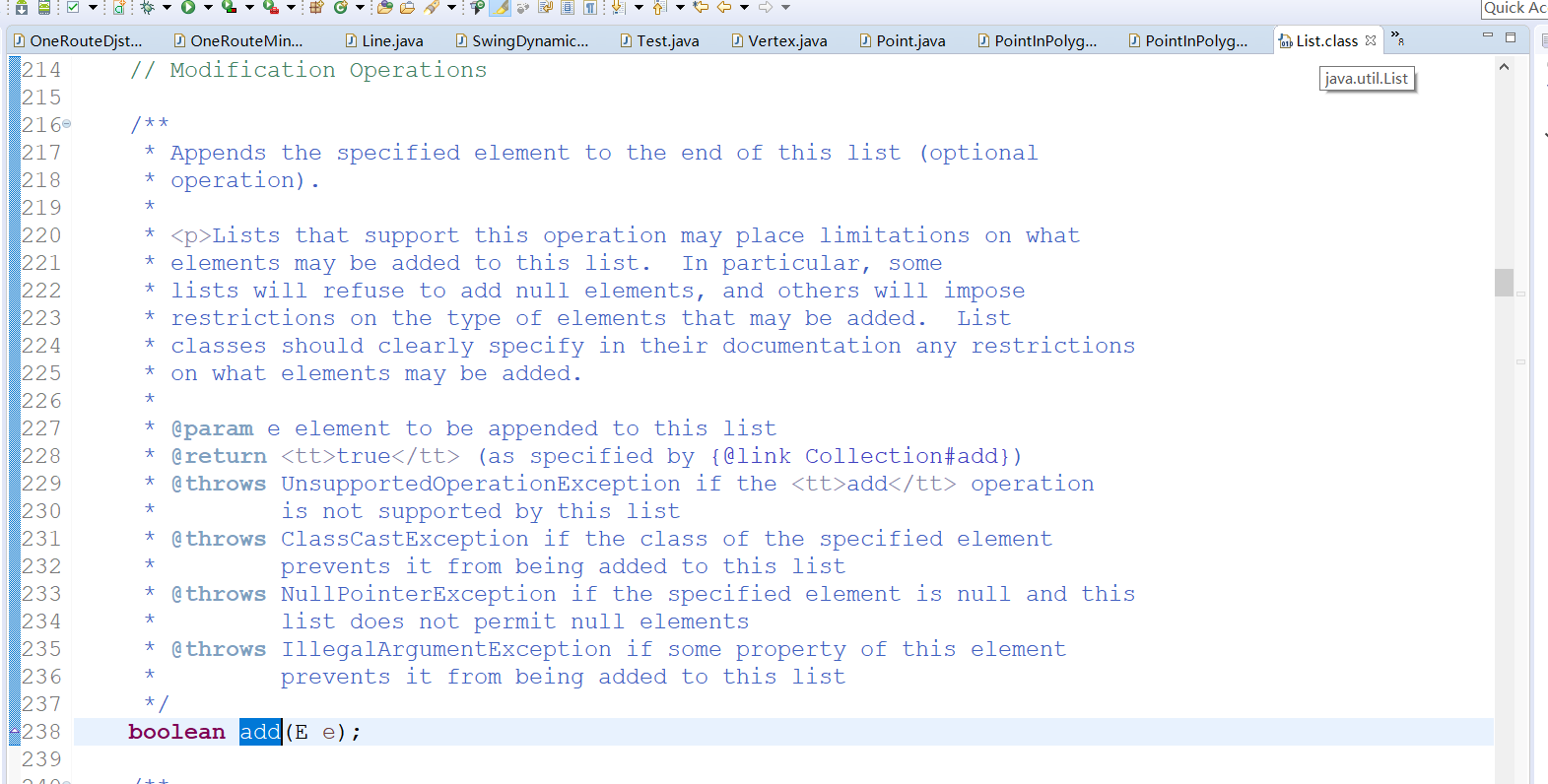// JDK 9 写法: List.of(...)
// List<Point> polygon = List.of(new Point(0, 0), new Point(0, 4), new Point(4, 4), new Point(4, 0));
// JDK 1.6 写法:使用ArrayList并手动add元素
List<Point> polygon = new ArrayList<Point>();
polygon.add(new Point(0, 0));
polygon.add(new Point(0, 4));
polygon.add(new Point(4, 4));
polygon.add(new Point(4, 0));
html
JDK 9 List.of(...)
JDK 1.6 boolean add(E e);
/**
* Appends the specified element to the end of this list (optional
* operation).
*
* <p>Lists that support this operation may place limitations on what
* elements may be added to this list. In particular, some
* lists will refuse to add null elements, and others will impose
* restrictions on the type of elements that may be added. List
* classes should clearly specify in their documentation any restrictions
* on what elements may be added.
*
* @param e element to be appended to this list
* @return <tt>true</tt> (as specified by {@link Collection#add})
* @throws UnsupportedOperationException if the <tt>add</tt> operation
* is not supported by this list
* @throws ClassCastException if the class of the specified element
* prevents it from being added to this list
* @throws NullPointerException if the specified element is null and this
* list does not permit null elements
* @throws IllegalArgumentException if some property of this element
* prevents it from being added to this list
*/
boolean add(E e);没有什么为什么,一方面以前做的项目1.6 1.8 要兼容,另一方面代码习惯,明了比简洁还要重要。